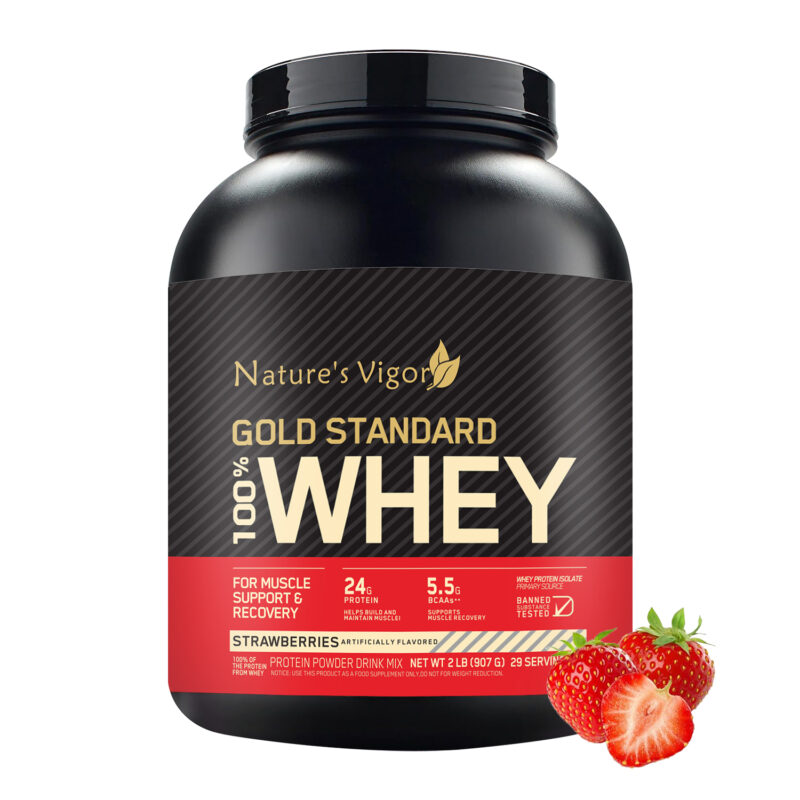Uncategorized
Best Practices for Using Whey Protein to Build Muscle
Introduction:
“Whey protein is one of the most popular and effective supplements for building muscle. Whether you’re a seasoned athlete or just starting your fitness journey, understanding how to maximize its benefits can make all the difference. In this article, we’ll explore how whey protein supports muscle growth, compare its different types, and highlight research-backed recommendations for dosage and timing.”
1. How Whey Protein Enhances Muscle Growth
- Scientific Insight:
- Whey protein is a complete protein, meaning it contains all nine essential amino acids required for muscle repair and growth. It is particularly high in leucine, a branched-chain amino acid (BCAA) critical for stimulating muscle protein synthesis (MPS).
- A study published in the Journal of Applied Physiology found that consuming whey protein after resistance training increased muscle protein synthesis by 30% compared to other protein sources.
- Key Benefits:
- Accelerates recovery by repairing damaged muscle fibers.
- Reduces muscle soreness post-workout.
- Promotes lean muscle mass growth.
- Practical Tip:
- To optimize muscle repair, consume whey protein within 30 minutes post-workout.
2. Types of Whey Protein: Isolate vs Concentrate
- Whey Protein Concentrate:
- Contains 70-80% protein by weight, with some fats and carbs remaining.
- Rich in bioactive compounds beneficial for general health.
- Suitable for individuals looking for a more cost-effective option.
- Whey Protein Isolate:
- Contains 90% or more protein by weight, with minimal fats and carbs.
- Lactose-free, making it ideal for those with lactose intolerance.
- Absorbs quickly, making it more efficient for post-workout recovery.
- Which to Choose?
- If you’re focused on muscle building and recovery with minimal calories, whey isolate is the better choice.
- For general supplementation and overall health benefits, whey concentrate is a more affordable and balanced option.
- Research Insight:
- A study in the International Journal of Sports Nutrition compared whey isolate and concentrate, finding that both types were effective for muscle growth, but isolate provided slightly faster recovery times due to quicker absorption.
3. Recommended Dosages and Timing
- Optimal Dosage:
- For muscle building, consume 20-30 grams of whey protein per serving.
- Studies suggest that consuming more than 40 grams in a single dose does not provide additional benefits for muscle synthesis.
- Timing:
- Post-workout: Consuming whey protein immediately after resistance training enhances muscle recovery and growth.
- Morning: Start your day with whey protein to prevent muscle breakdown after fasting overnight.
- Before Bed: Combine whey with a slow-digesting protein like casein for sustained muscle repair during sleep.
- Scientific Study:
- Research published in the American Journal of Clinical Nutrition found that individuals who consumed whey protein post-exercise gained 25% more muscle mass over 12 weeks compared to those who did not.
4. Incorporating Whey Protein into Your Diet
- In Shakes:
- Blend whey protein with water or milk for a quick and easy post-workout shake.
- In Smoothies:
- Mix with fruits, oats, and peanut butter for a nutrient-packed smoothie.
- In Recipes:
- Add whey protein to pancakes, oatmeal, or baked goods for a high-protein snack.
5. Addressing Common Myths
- Myth 1: Whey Protein Causes Kidney Damage
- Fact: Studies confirm that whey protein is safe for individuals with healthy kidney function.
- Myth 2: You Need to Consume Whey Protein Multiple Times a Day
- Fact: Spreading protein intake evenly throughout the day is beneficial, but whey protein is most effective post-workout.
6. Real-Life Success Stories
- User Experience:
- Ahmed, 26: “After incorporating whey isolate into my post-workout routine, I noticed significant muscle gains and faster recovery.”
- Sara, 30: “Whey concentrate worked perfectly for me. It was affordable, effective, and helped me build lean muscle without adding extra fat.”
Conclusion:
“Whey protein is a cornerstone of muscle-building nutrition. By understanding the differences between isolate and concentrate, optimizing dosage and timing, and incorporating it into your diet effectively, you can achieve your fitness goals faster. Whether you’re lifting weights or pursuing endurance training, whey protein is a proven, science-backed solution for enhancing muscle growth and recovery. Start your whey protein journey today and unlock your full athletic potential.”

































































